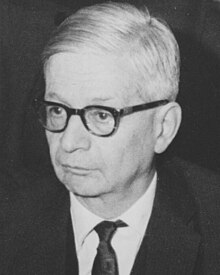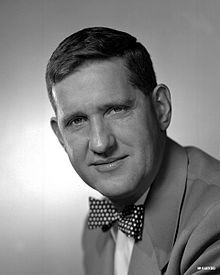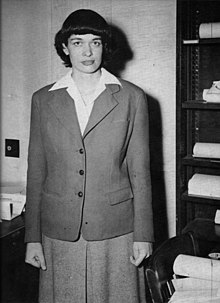Portal:Physics
| Physics Portal Main Page | Physics Textbook | Wikiprojects and things to do |
The Physics Portal


Physics is the natural science of matter, involving the study of matter, its fundamental constituents, its motion and behavior through space and time, and the related entities of energy and force. Physics is one of the most fundamental scientific disciplines, with its main goal being to understand how the universe behaves. A scientist who specializes in the field of physics is called a physicist.
Physics is one of the oldest academic disciplines and, through its inclusion of astronomy, perhaps the oldest. Over much of the past two millennia, physics, chemistry, biology, and certain branches of mathematics were a part of natural philosophy, but during the Scientific Revolution in the 17th century these natural sciences emerged as unique research endeavors in their own right. Physics intersects with many interdisciplinary areas of research, such as biophysics and quantum chemistry, and the boundaries of physics are not rigidly defined. New ideas in physics often explain the fundamental mechanisms studied by other sciences and suggest new avenues of research in these and other academic disciplines such as mathematics and philosophy.
Advances in physics often enable new technologies. For example, advances in the understanding of electromagnetism, solid-state physics, and nuclear physics led directly to the development of new products that have dramatically transformed modern-day society, such as television, computers, domestic appliances, and nuclear weapons; advances in thermodynamics led to the development of industrialization; and advances in mechanics inspired the development of calculus. (Full article...)

ZETA, short for Zero Energy Thermonuclear Assembly, was a major experiment in the early history of fusion power research. Based on the pinch plasma confinement technique, and built at the Atomic Energy Research Establishment in the United Kingdom, ZETA was larger and more powerful than any fusion machine in the world at that time. Its goal was to produce large numbers of fusion reactions, although it was not large enough to produce net energy.
ZETA went into operation in August 1957 and by the end of the month it was giving off bursts of about a million neutrons per pulse. Measurements suggested the fuel was reaching between 1 and 5 million kelvins, a temperature that would produce nuclear fusion reactions, explaining the quantities of neutrons being seen. Early results were leaked to the press in September 1957, and the following January an extensive review was released. Front-page articles in newspapers around the world announced it as a breakthrough towards unlimited energy, a scientific advance for Britain greater than the recently launched Sputnik had been for the Soviet Union. (Full article...)Did you know -

- ... the mirage of astronomical objects is an optical phenomenon, which produces distorted or multiple images of astronomical objects such as the Sun, the Moon, the planets, bright stars and very bright comets
- ... that your watch would run slower when orbiting a black hole than it would on Earth?
- ... that homing pigeons wouldn't be able to navigate on Mercury because the planet has no magnetic field or atmosphere?
Selected image -
 Engraving of André-Marie Ampère | |
| Born | 20 January 1775 |
| Died | 10 June 1836 (aged 61) Marseille, France |
| Nationality | French |
| Known for | Ampère's circuital law, Ampère's force law |
| Scientific career | |
| Fields | Physics |
| Institutions | École Polytechnique |
| Signature | |
André-Marie Ampère (20 January 1775 – 10 June 1836) was a French physicist and mathematician who is generally regarded as one of the main founders of the science of classical electromagnetism, which he referred to as "electrodynamics". The electric current unit of measurement known as the ampere is named after him.
Related portals
May anniversaries
- May 1, 1960 - U-2 spy plane shot down
- May 6, 1937 - Hindenburg fire
- May 9, 1012 BC – Solar Eclipse seen at Ugarit, 6:09–6:39 PM.
- May 9, 1904 – City of Truro, a steam locomotive exceeds 100 mph (160 km/h).
- May 10, 1946 – V-2 rocket's first successful launch at White Sands Proving Ground
- May 10, 1960 – The nuclear submarine USS Triton completes Operation Sandblast, the first underwater circumnavigation of the earth.
- May 11, 1862 – American Civil War: The ironclad CSS Virginia is scuttled in Virginia.
- May 11, 1995 – In New York City, over 170 countries extend Nuclear Nonproliferation Treaty indefinitely, without conditions.
- May 11, 1998 – India conducts three underground nuclear tests, including a thermonuclear device.
- May 14, 2018 - Ennackal Chandy George Sudarshan died.
- May 16, 1960 - Theodore Maiman operates the first optical laser, at Hughes Research Laboratories in Malibu, California.
- May 16, 1969 – Venera 5, a Soviet spaceprobe, lands on Venus.
- May 17, 1865 – The International Telegraph Union is established.
- May 18, 1974 - India conducts underground nuclear tests, named Smiling Buddha.
- May 18, 1998 - Microsoft sued by US Government
- May 19, 1943 - RAF uses bouncing bombs in combat
- May 20, 1932 - Amelia Earhart crosses Atlantic Ocean
- May 26, 1972 - President Nixon and Leonid Brezhnev sign nuclear weapon non-proliferation pact.
- May 24, 1844 - First official telegraph message is sent by Samuel Morse.
- May 27, 1937 - Grand opening, Golden Gate Bridge
- May 28, 1998 – Pakistan conducts five underground nuclear tests, named Chagai-I.
Births
- May 6, 1872 - Willem de Sitter, physicist, mathematician, and astronomer
- May 9, 1931 – Vance Brand, astronaut
- May 10, 1746 – Gaspard Monge, mathematician
- May 10, 1788 – Augustin-Jean Fresnel physicist
- May 10, 1963 – Lisa Nowak, astronaut
- May 11, 1918 – Richard Feynman, physicist
- May 14, 1686 - Gabriel Fahrenheit, physicist and engineer
- May 21, 1921 - Andrei Sakharov, nuclear physicist
Deaths
- May 10, 1482 – Paolo dal Pozzo Toscanelli, mathematician and astronomer
- May 16, 1830 – Joseph Fourier, French scientist
- May 17, 1916 – Boris Borisovich Galitzine, Russian physicist
General images
Categories

Fundamentals: Concepts in physics | Constants | Physical quantities | Units of measure | Mass | Length | Time | Space | Energy | Matter | Force | Gravity | Electricity | Magnetism | Waves
Basic physics: Mechanics | Electromagnetism | Statistical mechanics | Thermodynamics | Quantum mechanics | Theory of relativity | Optics | Acoustics
Specific fields: Acoustics | Astrophysics | Atomic physics | Molecular physics | Optical physics | Computational physics | Condensed matter physics | Nuclear physics | Particle physics | Plasma physics
Tools: Detectors | Interferometry | Measurement | Radiometry | Spectroscopy | Transducers
Background: Physicists | History of physics | Philosophy of physics | Physics education | Physics journals | Physics organizations
Other: Physics in fiction | Physics lists | Physics software | Physics stubs
Physics topics
Classical physics traditionally includes the fields of mechanics, optics, electricity, magnetism, acoustics and thermodynamics. The term Modern physics is normally used for fields which rely heavily on quantum theory, including quantum mechanics, atomic physics, nuclear physics, particle physics and condensed matter physics. General and special relativity are usually considered to be part of modern physics as well.
More recognized content
Associated Wikimedia
The following Wikimedia Foundation sister projects provide more on this subject:
-
Commons
Free media repository -
Wikibooks
Free textbooks and manuals -
Wikidata
Free knowledge base -
Wikinews
Free-content news -
Wikiquote
Collection of quotations -
Wikisource
Free-content library -
Wikiversity
Free learning tools -
Wikivoyage
Free travel guide -
Wiktionary
Dictionary and thesaurus

![Image 1 Franck in 1925 James Franck (German pronunciation: [ˈdʒɛɪ̯ms ˈfʁaŋk] ⓘ; 26 August 1882 – 21 May 1964) was a German physicist who won the 1925 Nobel Prize for Physics with Gustav Hertz "for their discovery of the laws governing the impact of an electron upon an atom". He completed his doctorate in 1906 and his habilitation in 1911 at the Frederick William University in Berlin, where he lectured and taught until 1918, having reached the position of professor extraordinarius. He served as a volunteer in the German Army during World War I. He was seriously injured in 1917 in a gas attack and was awarded the Iron Cross 1st Class. Franck became the Head of the Physics Division of the Kaiser Wilhelm Gesellschaft for Physical Chemistry. In 1920, Franck became professor ordinarius of experimental physics and Director of the Second Institute for Experimental Physics at the University of Göttingen. While there he worked on quantum physics with Max Born, who was Director of the Institute of Theoretical Physics. His work included the Franck–Hertz experiment, an important confirmation of the Bohr model of the atom. He promoted the careers of women in physics, notably Lise Meitner, Hertha Sponer and Hilde Levi. (Full article...)](http://upload.wikimedia.org/wikipedia/en/d/d2/Blank.png)










































































